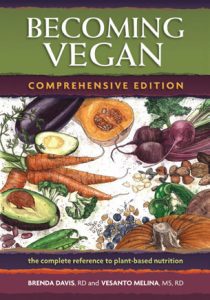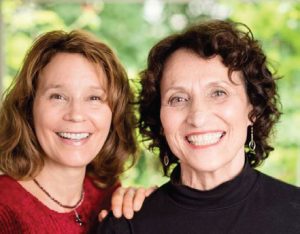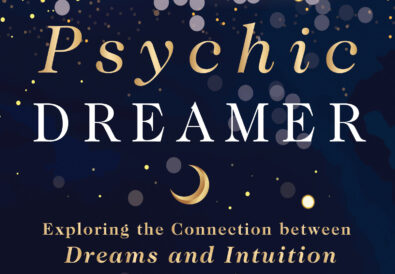Our lives begin to end the day we become silent about things that matter.
~ Martin Luther King
It takes immense inner strength to oppose the status quo. It takes courage to resist the pressure to accept what the influential people in your life consider morally and culturally reasonable, and perhaps even necessary. Yet, if people didn’t rise up against social injustice, slavery still would be legal, the poor would remain uneducated, and women wouldn’t be able to vote.
What does a vegan lifestyle have to do with social justice? Nothing—if animals are regarded as resources; everything—if animals are recognized as sentient beings. It’s possible that one of the greatest social injustices of our time doesn’t involve humans at all, but rather our fellow beings—nonhuman animals. Becoming vegan is about taking a stand against this injustice.
The seeds of vegan ethics were sown by philosophers and spiritual leaders in the East, where prevalent religions, such as Buddhism, Jainism, and Hinduism, emphasized compassion toward animals and included vegetarianism as a part of their core doctrines. These seeds were nurtured and spread in the West by Pythagoras, a sixth-century BC Greek philosopher and mathematician. Pythagoras shunned the consumption of animal flesh and directed his followers to do the same.
While many other notable thinkers followed suit, including Plato, Plutarch, Seneca, Ovid, and Socrates, it wasn’t until the mid-1800s that the moral roots of vegetarianism were firmly established in Western culture. The epicenter was England, and the driving forces were moral leaders of select Christian churches. Although the movement became wellgrounded in the West, when contrasted with the practices and teachings of the East, its early influence was limited.
Vegan Awakenings
The ethics of consuming dairy products were hotly debated within the burgeoning British vegetarian movement, but it wasn’t until 1944 that a small, like-minded group of individuals decided to develop a new branch of vegetarianism, one whose practitioners consumed no animal products.
The father of the contemporary vegan movement, Donald Watson (1910–2005), and his compatriots recognized that the flesh-food industry and the egg and dairy-product industries were inextricably linked, because animals raised to produce eggs and milk were eventually slaughtered and eaten when they were no longer productive. These British vegans contended that the case against these industries rivaled the indictment of the meat industry, so the use of dairy products and eggs was no longer justifiable for ethical vegetarians. Their intent was to eliminate the exploitation of animals and to move closer to a truly humane society.
Vegan: The Founder and the Word
Donald Watson coined the word vegan to describe a particular variant of vegetarianism that excluded the use and consumption of all animal products. A vegetarian for 81 years and vegan for 63, he successfully avoided any need for medication—conventional or herbal—and had hardly a day’s illness during his lifetime. His longevity had not been inherited; his father had passed on at the age of 63, and few other relatives survived beyond 70. As he aged, not only did he remain physically healthy but also mentally alert. Many of Watson’s most celebrated interviews were conducted after he turned 90, and he continued to grant interviews until shortly before his death at the age of 95.
Vegan Defined
A vegan is an individual who embraces the philosophy of veganism and seeks to follow a vegan lifestyle. Veganism is a philosophy that promotes reverence for life and compassion for all living beings and rejects the notion that animals are resources to be exploited. A vegan lifestyle excludes, as far as is possible and practical, all forms of animal exploitation. Vegans avoid consumer products derived from animals, including foods of animal origin; clothing produced from fur, leather, wool, or silk; and animal-derived ingredients in personalcare and cleaning products. Instead, animal-free alternatives are promoted. Vegans also avoid activities that involve the mistreatment of animals, including animal research and animal-based entertainment.
A vegan diet excludes meat, poultry, fish, dairy products, eggs, gelatin, and other foods of animal origin (except human breast milk). Vegan diets include all foods of plant origin, including vegetables, fruits, legumes, grains, nuts, and seeds.
A pure vegetarian is someone who follows only a vegan diet, not a vegan lifestyle. Sometimes pure vegetarians are referred to as “dietary vegans.” These individuals use non-dietary animal products, such as leather. They also may support the use of animals in research and have no objection to the use of animals for entertainment. In such cases, their choice to consume a vegan diet is generally motivated by personal health concerns rather than by any ethical objections to eating animals. However, pure vegetarians may become vegan as they learn more about vegan philosophy.
How Vegan Do I Need to Be to Call Myself a Vegan?
Being vegan isn’t about personal purity or about moral superiority. It’s about making a conscious choice to widen your circle of compassion by avoiding animal exploitation, as far as is possible and practical. It’s about becoming more other-centered and less self-centered. If you strive to avoid animal products and activities that exploit animals, you already are vegan, even if you slip on occasion. There are no vegan police scrutinizing card-carrying vegans. If there were, our numbers would rapidly diminish.
Why Vegan?
Albert Einstein recognized that the separate existence we feel as individuals is in fact an illusion—that along with all beings, we’re a part of the universe at large. He explained, A human being is part of a whole, called by us the universe, a part limited in time and space. He experiences himself, his thoughts and feelings, as something separated from the rest—a kind of optical delusion of his consciousness. This delusion is a kind of prison for us, restricting us to our personal desires and to affection for a few persons nearest us. Our task must be to free ourselves from this prison by widening our circles of compassion to embrace all living creatures and the whole of nature and its beauty.
Many people believe that being vegan is only about eschewing hamburgers and ice cream. It’s not. Being vegan is about widening our circles of compassion to include those who are commonly excluded, whether they’re humans or nonhuman animals. It’s about understanding that our choices have consequences for ourselves, and beyond ourselves. It’s about recognizing that eating animals and animal products is both unnecessary and potentially harmful.
Modern animal agriculture industry causes unspeakable suffering to animals, as well as potentially massive ecological devastation. Intensive animal agriculture reduces land for food production, contributes to global warming, and depletes natural resources.
If everyone on the planet ate lower on the food chain, hunger could essentially be eradicated, many diet-related diseases could be avoided, environmental destruction could be reversed, and animal suffering would ease. Being vegan is about making choices that are a true reflection of our ethical and moral principles, and acknowledging that custom and tradition justify nothing.
The vision of a truly ethical universe is captured brilliantly by the words of Dr. Albert Schweitzer, Nobel Peace Prize recipient and esteemed humanitarian: … the time is coming when people will be amazed that the human race existed so long before it recognized that thoughtless injury to life is incompatible with real ethics. Ethics is in its unqualified form extended responsibility with regard to everything that has life.
To begin to live ethically, the first critical step is to take the blinders off. Many exceptional books and documentaries explore the topic of animal rights and include exhaustive examinations of industries that exploit animals for retail products, entertainment, experimentation, and medical research. However, the industry most responsible for animal suffering is the food industry. More than 95 percent of all animals purposefully killed by people are killed to be eaten.
Nonhuman Animals— Their Plight, Our Power
Some people view everything on this planet as a resource here for the taking. To them, animals exist for the express purpose of serving humans in some way. This logic is used to defend the exploitation of animals for fashion, entertainment, experimentation, research, and food. Some controversy exists about how animals should be treated, but the actual use of animals isn’t a point of contention for the vast majority of people in our society.
However, the standard rules of use vary, depending on the creature and the culture. For example, in America, kittens and puppies are beloved pets. In China, they might be dinner; in some restaurants, patrons can select an individual kitten or puppy. Without a second thought, the chef efficiently skins and boils the animal alive. While Americans may be disgusted by the treatment of cats and dogs in China, treating lobsters in a similar manner seems perfectly acceptable.
Some people would argue that dogs and cats are more intelligent than lobsters, so they deserve to be treated more kindly. That might seem like a logical argument, except that our treatment of pigs, which have been shown to be more intelligent than dogs, is arguably worse than our treatment of lobsters. Yet, these intelligent animals are seldom treated as pets. Instead, they’re treated like raw materials for the food industry’s meat machine.
Fortunately, we have a choice. We can allow ourselves to fall into a hypnotic consumer trance, or we can honor our inner moral compass and withhold the gold. Better still, we might consider embracing the original Golden Rule: Do unto others as you would have others do unto you. This version serves as a core principle for every major religion and as a foundation for humanity.
Humankind is beginning to entertain the idea of expanding its definition of “others” to include our nonhuman brethren. The first steps have been taken. Scientists are now submitting declarations to protect the rights of animals that exhibit the traits of a “person,” such as self-awareness, creativity, communication, and intentionality. Perhaps the day will come when simply being a sentient being—able to think, feel and suffer— is enough.
Reprinted with permission from Becoming Vegan ©2014, from the Book Publishing Company (bookpubco.com).

 Brenda Davis, registered dietitian, is a leader in her field and an internationally acclaimed speaker. As a prolific nutrition and health writer, she has co-authored 10 books with over a million copies in print in 13 languages. Her most recent works include The Kick Diabetes Cookbook (2018), Becoming Vegan: Comprehensive Edition (2014) and Becoming Vegan: Express Edition (2013). She is currently working on an 11th diabetes book to be released in 2019. She has also authored numerous professional and lay articles. Brenda and her writing partner, Vesanto Melina developed and teach the nutrition program at Living Light Culinary Institute. She is a past chair of the Vegetarian Nutrition Dietetic Practice Group of the Academy of Nutrition and Dietetics, and in 2007 was inducted into the Vegetarian Hall of Fame. Brenda will be a featured speaker at The Real Truth About Health Conference 2019 in New York.
Brenda Davis, registered dietitian, is a leader in her field and an internationally acclaimed speaker. As a prolific nutrition and health writer, she has co-authored 10 books with over a million copies in print in 13 languages. Her most recent works include The Kick Diabetes Cookbook (2018), Becoming Vegan: Comprehensive Edition (2014) and Becoming Vegan: Express Edition (2013). She is currently working on an 11th diabetes book to be released in 2019. She has also authored numerous professional and lay articles. Brenda and her writing partner, Vesanto Melina developed and teach the nutrition program at Living Light Culinary Institute. She is a past chair of the Vegetarian Nutrition Dietetic Practice Group of the Academy of Nutrition and Dietetics, and in 2007 was inducted into the Vegetarian Hall of Fame. Brenda will be a featured speaker at The Real Truth About Health Conference 2019 in New York.

















